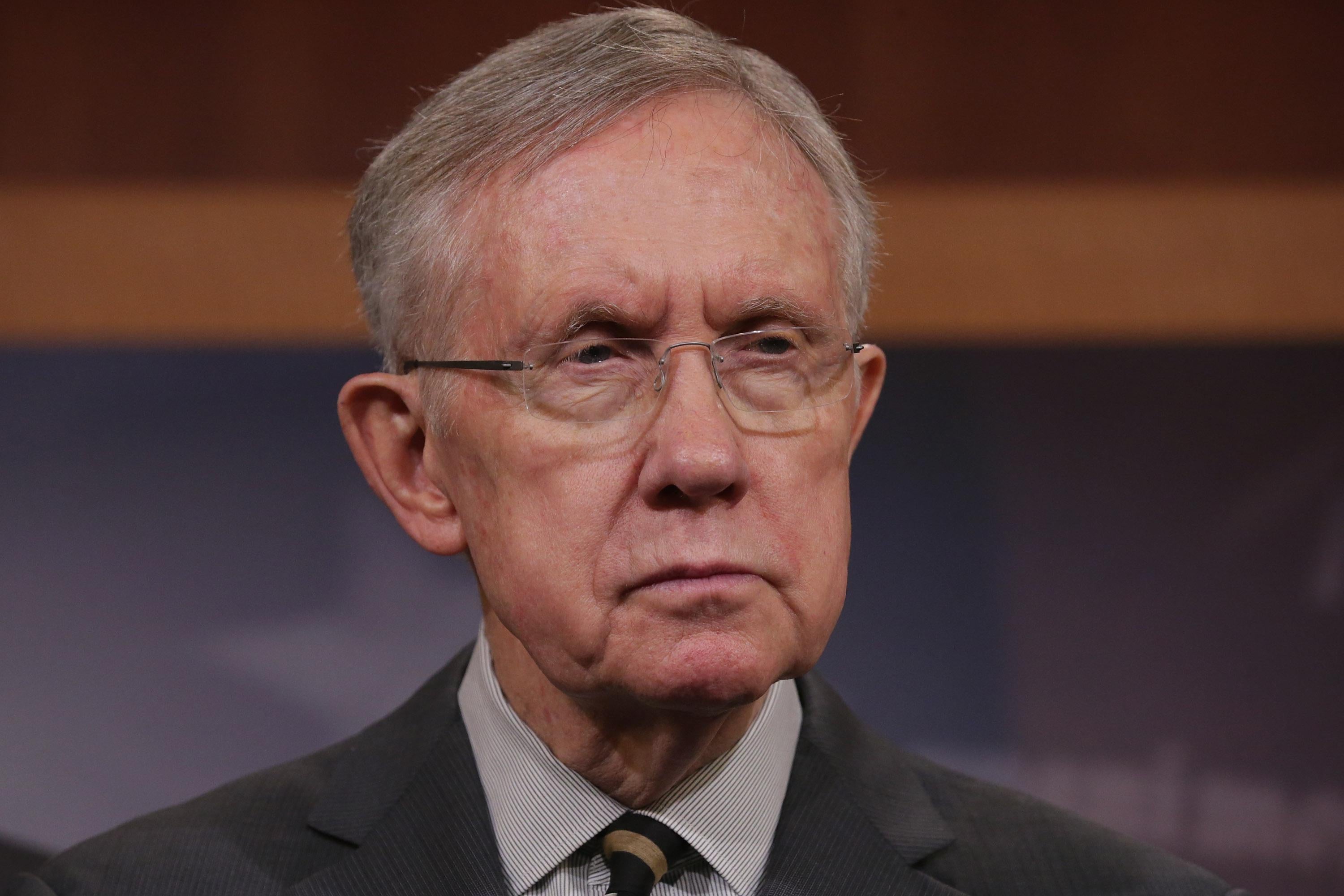Harry Reid’s days in the Senate are officially numbered, and Republicans must be a tiny bit bummed. Reid was Public Enemy No. 1 for Republicans during the 2014 midterms, and candidates around the country invoked his time as Senate majority leader to make the case for ousting vulnerable Senate Democrats. And while nobody draws as much grassroots conservative ire as President Obama, Republicans’ “Fire Harry Reid” refrain proved pretty effective.
Hating on Harry made sense for everyone from Cory Gardner—who beat an incumbent Democrat in Colorado by running as a pro-immigration moderate—to Ted Cruz, who released a Retire Harry Reid-themed get-out-the-vote video. The Republican National Committee used anti-Reid messaging to galvanize activists and donors. And it all worked: Reid wasn’t exactly fired, but he’s out. In the post-Reid era, Republicans will have to hope the universe gives them comparably energizing foes.
And that could be a tall order, as Senate Majority Leader Mitch McConnell suggested in an affecting statement he released on the Nevadan’s retirement.
“Nothing has ever come easily to this son of Searchlight,” McConnell said. “Underestimated often, his distinctive grit and determined focus nevertheless saw him through many challenges. They continue to make him a formidable opponent today.”
Speaker of the House John Boehner was equally decorous.
“Harry Reid has always been a tough advocate for the people of Nevada, and I have always appreciated the candid and straightforward nature of our relationship,” he said.
On the campaign side, Republicans were a little less buttoned-up. Ward Baker, who heads the National Republican Senatorial Committee, celebrated that the senator “decided to hang up his rusty spurs” and said in his statement that the race to fill his seat will be the GOP’s top 2016 pickup opportunity.
Ward is probably right about that, but largely because Republicans will be playing defense in the 2016 Senate contests. Republican candidates do much better in elections that don’t happen in presidential years—compare 2014 and 2010 with 2012 and 2008, for instance—and there will be a host of Republican incumbent senators running in blue and purple states who could be highly vulnerable. Not having Reid as a foil will only make things tougher for them.
